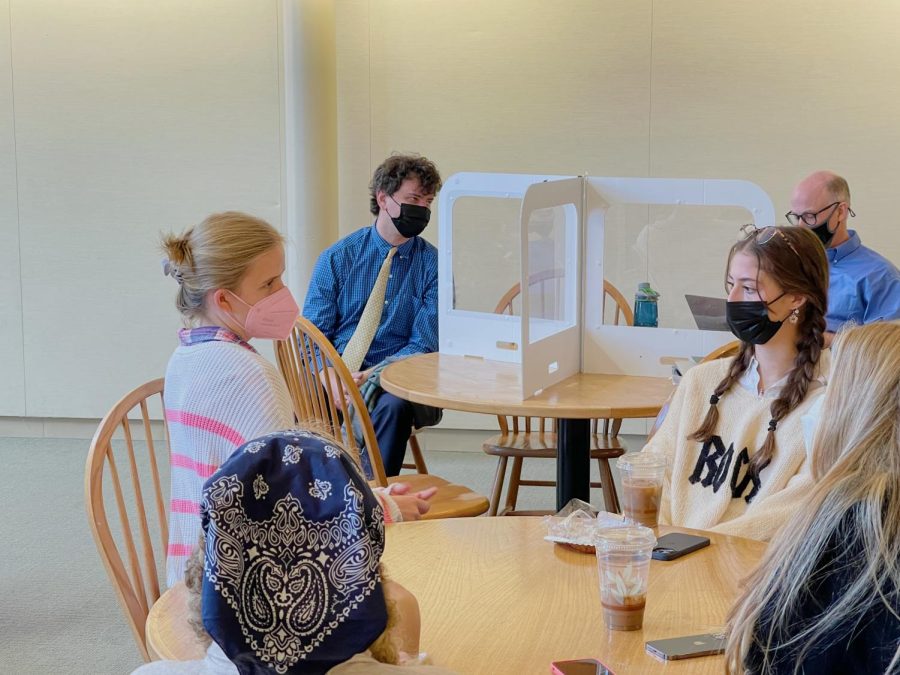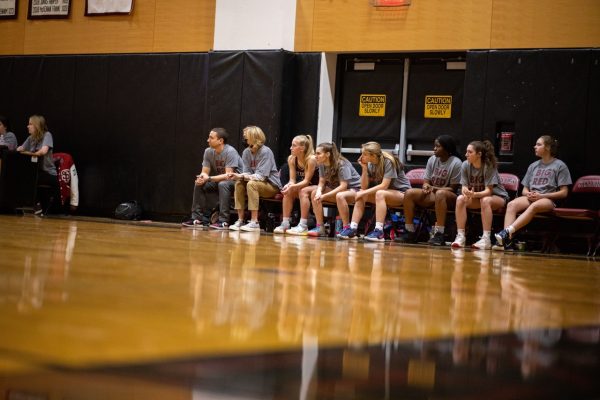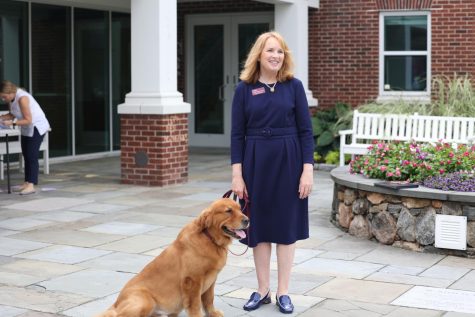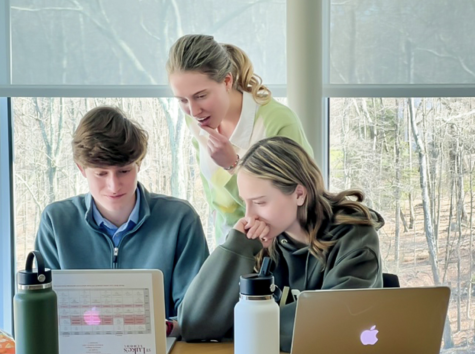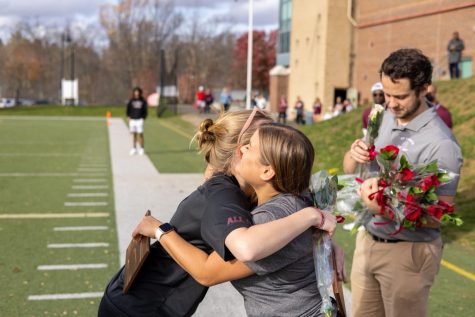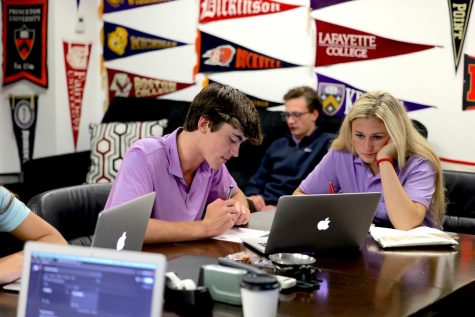Why Feminism Impacts Us All
January 19, 2022
On Tuesday, November 2, the Feminism Club led a Community Goals for Learning (CGL) discussion on Why Feminism Impacts Us All. St. Luke’s students dove into thoughtful conversations about the definition of feminism and whether it is easy for people at St. Luke’s to call themselves feminists.
When Mrs. Yavenditti approached us at the beginning of the year about designing a Feminism Club CGL, we were thrilled. We would have the agency to choose a topic we were passionate about and the opportunity to take the reins and co-design the experience. However, coming up with the blueprint for the CGL was much more difficult than anticipated.
We knew that this might be the only time we would get to have this important conversation. The questions needed to be perfect, and the layout had to be clear and easy to understand. What if the CGL event went completely wrong, and students grew more resistant to the idea of feminism? The pressure we put on ourselves to prove the significance of women’s rights stemmed back to hostility around the Feminism Club.
CESSA:
During the first bake sale of the year, the Feminism Club raised $912. The astonishing amount of money raised for Blossom Hill, a nonprofit coding program located in Afghanistan, set all kinds of records at St. Luke’s. To applaud the St. Luke’s student body for their contributions and support, I gave a town meeting announcement about the money raised. Ten minutes after my congratulatory statement, I received a text on my phone. My friend overheard a group of boys in the café mocking me and making fun of the club. This behavior did not surprise me because I had seen it before.
In September of 2019, Moli Ma and I mentioned to the entire Upper School that we were going to create the first feminism club at St. Luke’s. Instead of nodding in agreement, the audience groaned, laughed, and whispered.
ALE:
I remember sitting next to my classmates, embarrassed and even ashamed. When my peers laughed at the idea of a feminist club, I felt as though the experiences I had encountered were insignificant. Since my classmates did not take feminism seriously, I too believed that the issue was not important.
CESSA:
Starting the Feminism Club has been a revealing endeavor. I have noticed that the label “feminist” is used by some as an insult and has morphed into a derogatory term. While heading to my first ever club meeting freshman year, I passed two senior boys in the hallway and heard them whisper “man-hater” under their breath followed by a sarcastic, “I’m a misogynistic man.” Luckily, it did not deter me one bit. On the contrary, it put a pep in my step as I climbed up the stairs.
_________________________________________________________________________________________
It is natural and normal to have different perspectives. While we stand by that, it is frustrating that the importance of feminism is not echoed in the student body. Rather than scream at someone or plug our ears at the notion of differing views (a tactic we see played out on political stages and social media), we wanted to understand why feminism is such a polarizing topic in this current age.
We discussed the upcoming CGL with the advisors and members of our club and agreed to begin the event by stating the definition of feminism. Merriam-Webster defines feminism as “the belief that men and women should have equal rights and opportunities.” At its core, feminism allows for an even playing field for both genders. The definition is important to us because it illustrates that anyone can be a feminist.
We then crafted a four corners activity to spur thoughtful dialogue in response to questions. A four corners debate has students show their position on a specific statement (strongly agree, agree, disagree, strongly disagree) by standing in a particular corner of the room. We crafted five statements:
- It is easy for anyone at SLS to say they are a feminist.
- When we talk about feminism, we don’t get to talk about issues and challenges that other people face.
- It is easy to discuss feminist issues at St. Luke’s
- We need to continue feminist advocacy for the political, economic, and social equality of the sexes.
- It is possible to believe in the goal of equality of the sexes without labeling yourself as a feminist
While walking back from the CGL to our next-period class, we heard many people buzzing with thoughts and ideas. Teachers and peers approached us with the news of their group’s thoughtful conversations. It was clear some students left thinking more deeply about feminism, and that’s all we could have asked for.
If we’ve learned anything, it’s that in times like these, when it’s hard even to start these conversations, and it’s impossible to please everyone, you just need to try. We needed to lower our expectations and realize we are all kind of lost in this world where down is right and up is northwest. We do not expect one conversation to solve everything, and we also understand that people’s views are constantly changing. With topics as complex and sensitive as these, it’s important we come from a place of curiosity and wanting to listen rather than a place of wanting to be right. We are all teenagers who are trying to figure things out. If we understand that no one truly understands, we’re in good shape!



